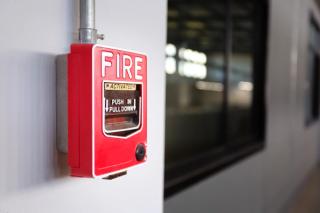
Understanding sound flanking: Fire alarm speaker cable conduits in multi-family buildings
by Neil Vyas
View post

We are faced with the trilemma of having to rapidly decarbonise our economy, while at the same time meeting our energy security needs and ensuring a just transition for all communities. A confluence of events and discourses such as the Ukraine war, the impact of climate change and our obligations under the Paris Agreement commitments, is bringing into sharp focus the critical need to provide a clean energy transition. Supported by competitive technology solutions, political commitment and aligned incentives and policies in tandem with climate finance, this critical need is within our grasp.
The transition to clean energy will require an unprecedented level of investment, co-operation and collaboration between governments, businesses, energy companies and citizens. Governments have a key role to play in incentivising and supporting the creation of a cleaner energy landscape, through the implementation of appropriate fiscal policies, regulatory reforms and targeted public investments, which have already begun under REPowerEU legislation and amendments in the Fit for 55 and Renewable Energy Directive.
Energy companies must also be actively involved in the process, investing in the development and deployment of new technologies and infrastructure. They must also ensure that the supply chain they use to procure materials and finished goods, is managed responsibly and sustainably.
At the same time, citizens and businesses must play their part in transitioning to clean energy, by making informed choices about their energy consumption, and being aware of the environmental and social impact of their energy use. This could involve investing in energy efficiency measures, choosing renewable energy sources or engaging in energy-saving practices.
One particularly daunting aspect of the energy transition, is the myriad of options available, with the legitimate concern that the wrong horse may be backed. For example, hydrogen has a rainbow of colours, depending on the source, and energy storage development can be based on lead-acid, lithium-ion or flow batteries – there is even the emerging concept of bio-batteries. All these innovations acknowledge that that batteries are not the only method of storing excess renewable electricity; it is also possible to consider pumped hydro or storing compressed air underground.
The landscape of energy production and distribution is going to be fundamentally different over the coming years, as power is generated from a very broad range of sources. If companies understand the specifics of their needs and get the right advice on meeting these, then there will be a workable solution that can help reduce reliance on fossil fuel consumption.
Ultimately, the transition to clean energy will require a concerted and collaborative effort from all stakeholders. Businesses, governments and citizens must work together to develop and implement solutions that maximise the benefits of clean energy, while minimising the environmental and social impacts. By doing so, we can create a cleaner and more sustainable energy landscape, and a better future for generations to come.
Our team would be happy to discuss with you how these actions can help your business become more sustainable.

by Neil Vyas

